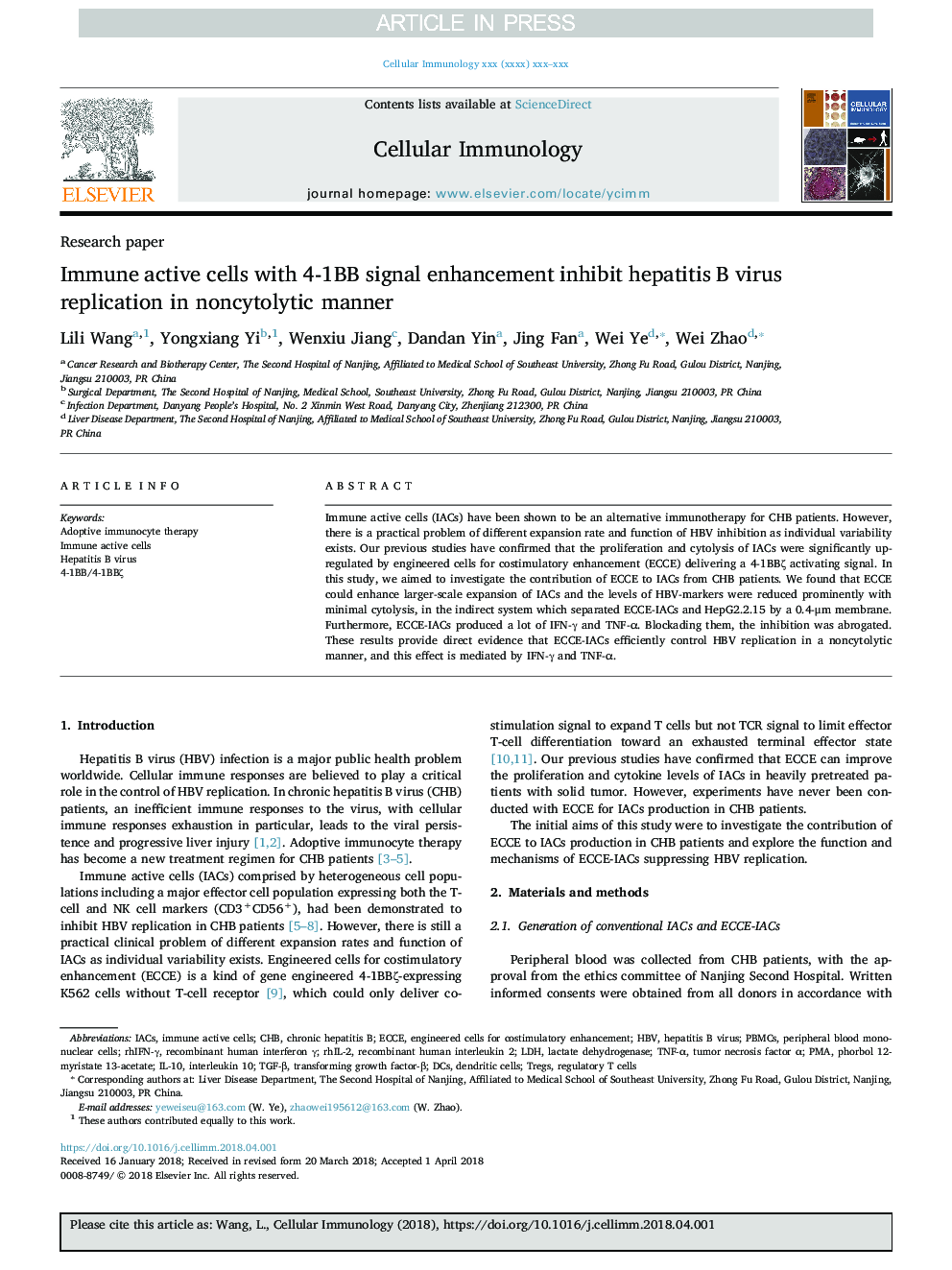| Article ID | Journal | Published Year | Pages | File Type |
|---|---|---|---|---|
| 8463551 | Cellular Immunology | 2018 | 7 Pages |
Abstract
Immune active cells (IACs) have been shown to be an alternative immunotherapy for CHB patients. However, there is a practical problem of different expansion rate and function of HBV inhibition as individual variability exists. Our previous studies have confirmed that the proliferation and cytolysis of IACs were significantly up-regulated by engineered cells for costimulatory enhancement (ECCE) delivering a 4-1BBζ activating signal. In this study, we aimed to investigate the contribution of ECCE to IACs from CHB patients. We found that ECCE could enhance larger-scale expansion of IACs and the levels of HBV-markers were reduced prominently with minimal cytolysis, in the indirect system which separated ECCE-IACs and HepG2.2.15 by a 0.4-μm membrane. Furthermore, ECCE-IACs produced a lot of IFN-γ and TNF-α. Blockading them, the inhibition was abrogated. These results provide direct evidence that ECCE-IACs efficiently control HBV replication in a noncytolytic manner, and this effect is mediated by IFN-γ and TNF-α.
Keywords
DCsrecombinant human interleukin 2TGF-βIACSrhIL-2CHBTregsphorbol 12-myristate 13-acetatePBMCsIL-10PMAECCEInterleukin 10transforming growth factor-βtumor necrosis factor αperipheral blood mononuclear cellsDendritic cellsRegulatory T cellsTNF-αlactate dehydrogenaseLDHchronic hepatitis BHBVhepatitis B virus
Related Topics
Life Sciences
Biochemistry, Genetics and Molecular Biology
Cell Biology
Authors
Lili Wang, Yongxiang Yi, Wenxiu Jiang, Dandan Yin, Jing Fan, Wei Ye, Wei Zhao,
